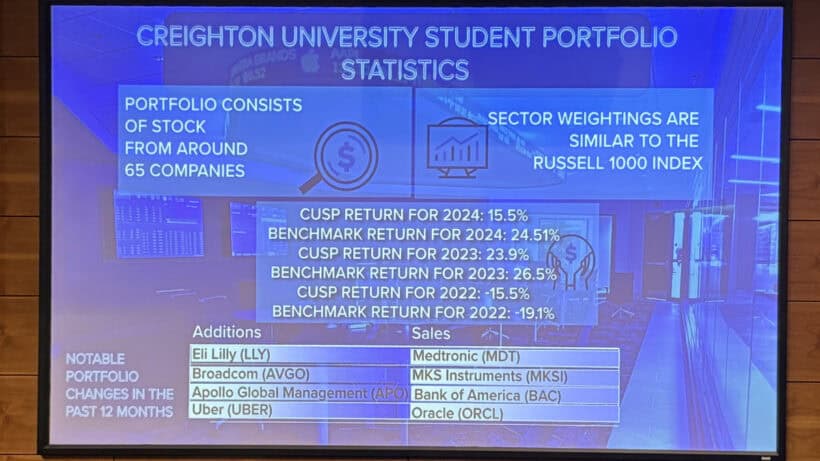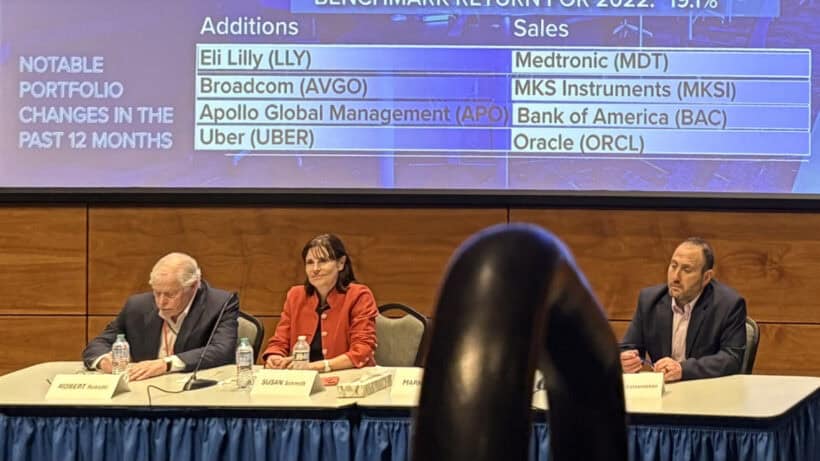On Friday, May 2, 2025, ahead of the Berkshire Hathaway Annual Shareholders Meeting, Creighton University hosted its annual Value Investing Panel at the Mike and Josie Harper Center Auditorium. This year’s panel featured a lineup of top investors, including:
- Susan Schmidt, CFA, Head of Public Equities and Portfolio Manager at Exchange Capital Resources
- Mark Wynegar, CFA, President and Portfolio Manager at Tributary Capital Management
- Vitaliy N. Katsenelson, CFA, CEO and Chief Investment Officer at Investment Management Associates
- Robert Robotti, President and Chief Investment Officer at Robotti & Company
Moderating the panel were:
- Dr. Robert R. Johnson, CFA, CAIA, Professor at the Heider College of Business and CEO of Economic Index Associates
- Sarah F. Murray, CFA, CIPM, Vice President of Investments at Bridges Trust and adjunct professor at Creighton University
Check out our coverage of the 2025 Berkshire Hathaway Annual Meeting and other exciting Omaha value investing events here.
The discussion spanned everything from how value investors navigate modern markets to reflections on risk, behavioral biases, and career advice for the next generation of investors.

Q: How has the role of traditional research changed?
Susan Schmidt: It’s gotten a lot harder. Every year feels like a race because you have to beat your benchmark and benchmarks with lower costs are inefficient. It’s so difficult to outperform. Portfolios that do outperform tend to be more concentrated, which means fewer positions. You have to be better and better at research and truly understand what you're investing in.
Mark Wynegar: Small and mid-cap stocks are a bit different in terms of benchmarks; we use the Russell 2000 and 2500, respectively. Active management can and does beat benchmarks over long periods of time. But it’s not enough to just beat the benchmark; you also need to get paid. In those asset classes, it's as much about what you avoid as what you own. Avoiding unprofitable or overvalued groups gives you a real edge. It’s a very different dynamic from the S&P 500.
Vitaliy N. Katsenelson: Every time someone buys an index fund, the market gets a little dumber because that buyer isn’t analyzing anything. That actually makes our job easier since the competition gets weaker. The next 10 to 15 years look positive for active investors. Also, institutional investors are often constrained by mandates, but if you’re an individual or running your own firm, you don't have to limit yourself by size or sector. If you’re thinking in short timeframes, though, you shouldn't be investing.
Robert Robotti: It’s hard to beat the benchmark, but investing is a forward-looking activity. And in some ways, it’s easier now than it’s been because the field is less competitive. Bottom-up stock picking is a skill that’s fading, but there’s never been a better time to be a stock picker.


